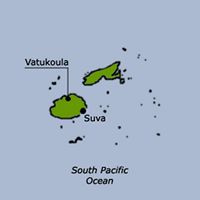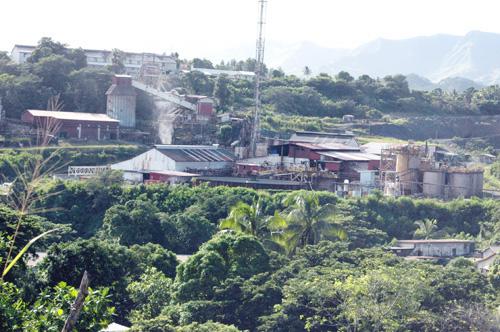The following, by Byron Clark, was first published in the July issue of The Spark
“Can we manage the tensions between Fiji and Tonga?” that was the question posed in the press release promoting the interview journalist Guyon Espiner was conducting with Foreign Affairs Minister Murray McCully on the June 12 episode of TVNZ’s Q&A. The question is loaded with political assumptions; first of all the term ‘we’ assumes that there is some universal ‘New Zealand interest’ shared by both the audience of Q&A, and those that McCully and the government he is part of represent. Second, it is assumed that ‘we’ have the right to intervene with the affairs of two other sovereign nations.
The diplomatic dispute between Fiji and Tonga began when Tonga granted citizenship to Tevita Mara after he fled Fiji. Mara was the Army Chief of Staff -the fourth highest position in the Fijian military- and controlled an infantry of approximately 500 soldiers. In May he was charged with mutiny and accused of attempting to overthrow the government. He has been declared a fugitive under Fiji’s Extradition Act. Continue reading “New Zealand state continues to bully Fiji”
Vatukoula's 19-year miners strike
Byron Clark
The Spark August 2010
The Fiji Mineworke rs Union is currently seeking a resolution to one of the worlds longest running industrial disputes, over 340 workers have been on strike in the town of Vatukoula since 1991. In the 19 years since the strike began, the mine was closed (in 2006), sold, and re-opened under the ownership of another company, at which point none of the striking miners were re-hired. In recent times, gold production and sales have surged in Vatukoula while the former Emperor Gold employees continue to seek redress for their grievances. The miners continue to live in company housing and picket the mine regularly. The Spark examines the role the town of Vatukoula has played in Fiji’s labour history, and the exploitation of workers and the environment by multinational mining companies.
rs Union is currently seeking a resolution to one of the worlds longest running industrial disputes, over 340 workers have been on strike in the town of Vatukoula since 1991. In the 19 years since the strike began, the mine was closed (in 2006), sold, and re-opened under the ownership of another company, at which point none of the striking miners were re-hired. In recent times, gold production and sales have surged in Vatukoula while the former Emperor Gold employees continue to seek redress for their grievances. The miners continue to live in company housing and picket the mine regularly. The Spark examines the role the town of Vatukoula has played in Fiji’s labour history, and the exploitation of workers and the environment by multinational mining companies.
A Company Town

Gold was first discovered in the Vatukoula, in the north of Viti’ Levu by an Australian prospector in 1932, and the establishment of a mine by an Australian mining company, Emperor Gold Mining, followed soon after. Still a British colony, Emperor Gold practised what the Fiji Times has labelled “colonial-style mine management”. In a thesis submitted to the University of Vermont, Mary Ackley outlines what this means: Continue reading “Vatukoula's 19-year miners strike”
New Zealand’s Imperialist attitude toward Fiji
Byron Clark The Spark March 2009
In what John Key has described as sending “a strong message” Pacific Forum leaders voted earlier this year to suspend Fiji from the Forum unless the interim government sets an election date before May 1. The suspension means that Fiji cannot attend meetings between forum leaders, ministers or officials; it will also be excluded from benefiting from any regional initiatives run under the forum. Both Mr Key and forum chairman Toke Talagi said the decision was made by consensus, a surprising result given smaller Pacific nations were expected to vote against suspension, with Papua New Guinea Prime Minister Sir Michael Somare stating in his speech (released to the media before the meeting) “I am of the strong view that adopting an isolationist approach would be unhelpful.”
Fiji has already lost the benefits of one “regional initative” – participation in the seasonal work scheme allowing Pacific Islanders to work in New Zealand. Fiji was suspended from the scheme by the previous Labour government. So far this sanction has done little – if anything – to destabilise the military regime, instead it has effected ordinary Fijians. The Fiji based Coalition for Democracy and Peace, consisting of citizens’ groups and non-governmental organisations, had said that the poor are the ones most affected by sanctions imposed by New Zealand. Even when New Zealand sent aid to Fiji (via the Red Cross) in the wake of horrific floods, local Fijians said a better way for the New Zealand Government to help them would be to let them work in New Zealand, rather than give aid money. A petition was circulated asking Prime Minister John Key to issue special directions for one-year work visas for flood victims, and for an equivalent to the Pacific Access Category for Fijian citizens already in New Zealand. Continue reading “New Zealand’s Imperialist attitude toward Fiji”
